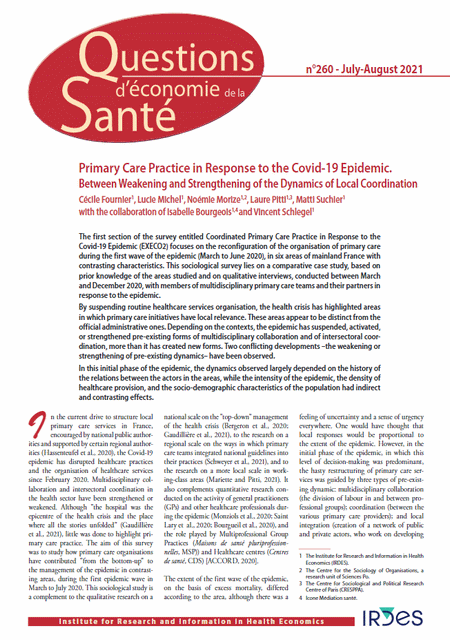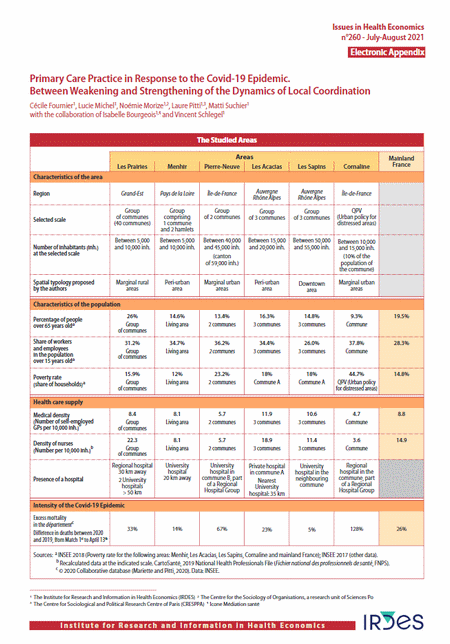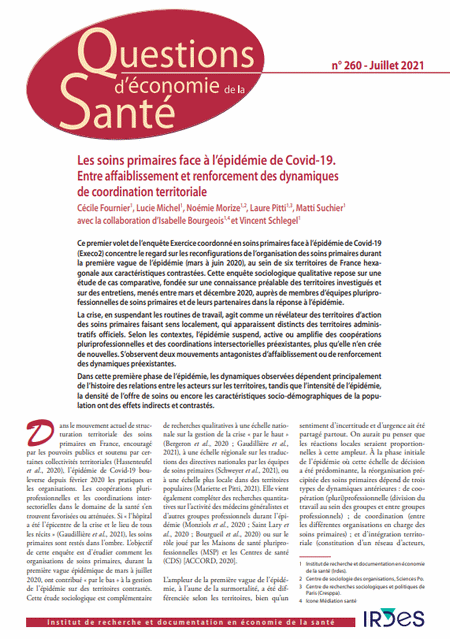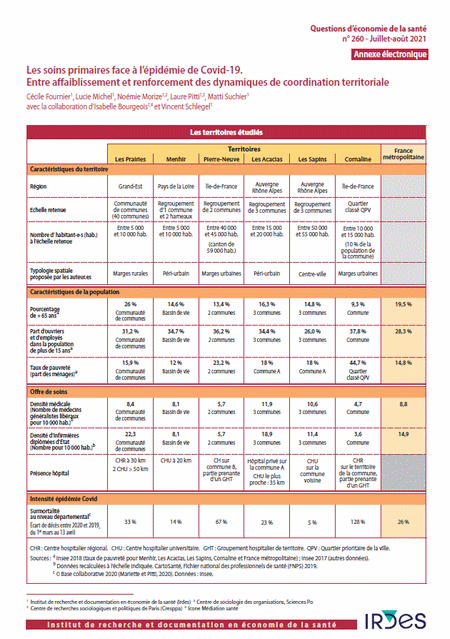Primary Care Practice in Response to the Covid-19 Epidemic. Between Weakening and Strengthening of the Dynamics of Local Coordination
Fournier C. (IRDES), Michel L. (IRDES), Morize N. (IRDES, Centre de sociologie des organisations, Sciences Po), Pitti L. (IRDES, CRESPPA), Suchier M. (IRDES), with the collaboration of Bourgeois I. (IRDES, Icone Médiation santé) et Schlegel V. (IRDES)
Questions d'économie de la santé (Issues in Health Economics) n° 260 - August 2021
ABSTRACT
The first section of the survey entitled Coordinated Primary Care Practice in Response to the Covid-19 Epidemic (EXECO2) focuses on the reconfiguration of the organisation of primary care during the first wave of the epidemic (March to June 2020), in six areas of mainland France with contrasting characteristics. This sociological survey lies on a comparative case study, based on prior knowledge of the areas studied and on qualitative interviews, conducted between March and December 2020, with members of multidisciplinary primary care teams and their partners in response to the epidemic.
By suspending routine healthcare services organisation, the health crisis has highlighted areas in which primary care initiatives have local relevance. These areas appear to be distinct from the official administrative ones. Depending on the contexts, the epidemic has suspended, activated, or strengthened pre-existing forms of multidisciplinary collaboration and of intersectoral coor-dination, more than it has created new forms. Two conflicting developments -the weakening or strengthening of pre-existing dynamics- have been observed.
In this initial phase of the epidemic, the dynamics observed largely depended on the history of the relations between the actors in the areas, while the intensity of the epidemic, the density of healthcare provision, and the socio-demographic characteristics of the population had indirect and contrasting effects.
See also Questions d'économie de la santé n° 260 in French: Les soins primaires face à l'épidémie de Covid-19. Entre affaiblissement et renforcement des dynamiques de coordination territoriale.



